Filter by

Orchestrating Public Opinion How Music Persuades in Television Political Ads…
Analysis of political advertising tends to give music short shrift - which flies in the face of what we know about the power of music to set a mood, affect feelings, and influence our perceptions. This book is the first to offer a detailed exploration of the role of music in US presidential campaign advertising, from Eisenhower to the present, showing that in many cases music isn't simply one e…
- Edition
- -
- ISBN/ISSN
- 9789048531677
- Collation
- -
- Series Title
- -
- Call Number
- -
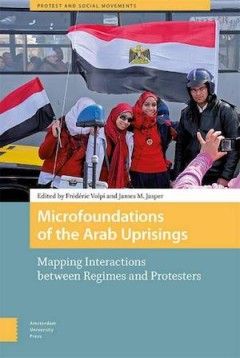
Microfoundations of the Arab Uprisings Mapping Interactions between Regimes …
This book brings together a roster of prominent contributors to present a strategic interactionist perspective on the study of contentious politics in the Middle East in response to the Arab uprisings. The common thread among the contributions is an interest in the micro-level interactions between various strategic players, including not only the mobilisation of protestors during the uprisings …
- Edition
- -
- ISBN/ISSN
- 9789462985131
- Collation
- -
- Series Title
- -
- Call Number
- -

Oil Spaces: Exploring the Global Petroleumscape
Oil Spaces traces petroleum’s impact through a range of territories from across the world, showing how industrially drilled petroleum and its refined products have played a major role in transforming the built environment in ways that are often not visible or recognized. Over the past century and a half, industrially drilled petroleum has powered factories, built cities, and sustained nation-…
- Edition
- -
- ISBN/ISSN
- 9781000449495
- Collation
- -
- Series Title
- -
- Call Number
- -

Fanfiction and the Author How Fanfic Changes Popular Cultural Texts
Whether you look at quantity, quality, or readership, we are in an unprecedented era of fan fiction. Thus far, however, the genre has been subject to relatively little rigorous qualitative or quantitative study—a problem that Judith May Fathallah remedies here through close analysis of fanfiction related to Sherlock, Supernatural, and Game of Thrones. Her large-scale study of the sites, recep…
- Edition
- -
- ISBN/ISSN
- 9789048529087
- Collation
- -
- Series Title
- -
- Call Number
- -
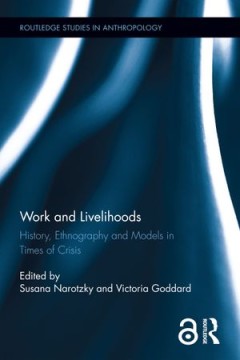
Work and Livelihoods History, Ethnography and Models in Times of Crisis
Winner of the Society for the Anthropology of Work book prize 2017 This volume presents a global range of ethnographic case studies to explore the ways in which - in the context of the restructuring of industrial work, the ongoing financial crisis, and the surge in unemployment and precarious employment - local and global actors engage with complex social processes and devise ideological, po…
- Edition
- -
- ISBN/ISSN
- 9781317602446
- Collation
- -
- Series Title
- -
- Call Number
- -
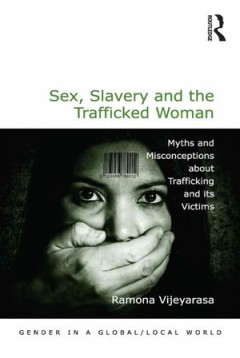
Sex, Slavery and the Trafficked Woman Myths and Misconceptions about Traffic…
Sex, Slavery and the Trafficked Woman is a go-to text for readers who seek a comprehensive overview of the meaning of ’human trafficking’ and current debates and perspectives on the issue. It presents a more nuanced understanding of human trafficking and its victims by examining - and challenging - the conventional assumptions that sit at the heart of mainstream approaches to the topic. A p…
- Edition
- -
- ISBN/ISSN
- 1317056833
- Collation
- -
- Series Title
- -
- Call Number
- -
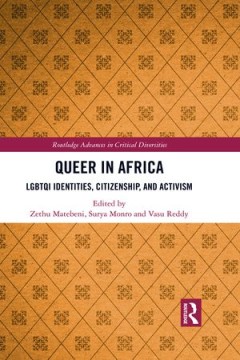
Queer in Africa LGBTQI Identities, Citizenship, and Activism
African sexualities are dynamic, multi-faceted and resilient. However, people with non-heterosexual sexualities and gender variant identities are often involved in struggles for survival, self-definition, and erotic rights. Queer in Africa forms an entry point for understanding the vulnerabilities of queer Africans as shaped by social, cultural and political processes, aiming to provide innovat…
- Edition
- -
- ISBN/ISSN
- 1315406721
- Collation
- -
- Series Title
- -
- Call Number
- -
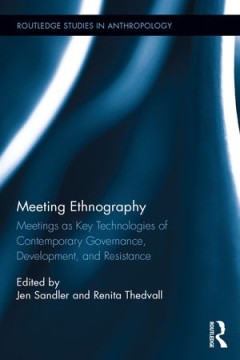
Meeting Ethnography Meetings as Key Technologies of Contemporary Governance,…
This volume asks and addresses elusive ontological, epistemological, and methodological questions about meetings. What are meetings? What sort of knowledge, identities, and power relationships are produced, performed, communicated, and legitimized through meetings? How do—and how might—ethnographers study meetings as objects, and how might they best conduct research in meetings as particula…
- Edition
- -
- ISBN/ISSN
- 1317195108
- Collation
- -
- Series Title
- -
- Call Number
- -
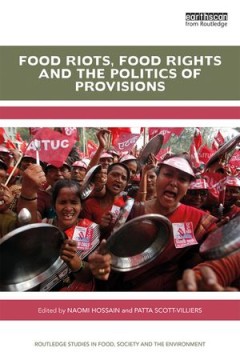
Food Riots, Food Rights and the Politics of Provisions
Thousands of people in dozens of countries took to the streets when world food prices spiked in 2008 and 2011. What does the persistence of popular mobilization around food tell us about the politics of subsistence in an era of integrated food markets and universal human rights? This book interrogates this period of historical rupture in the global system of subsistence, getting behind the head…
- Edition
- -
- ISBN/ISSN
- 9781138040168
- Collation
- -
- Series Title
- -
- Call Number
- -
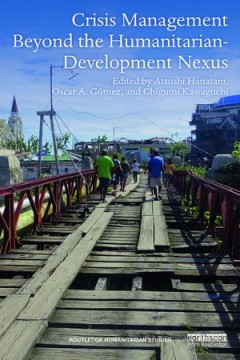
Crisis Management Beyond the Humanitarian-Development Nexus
In addressing humanitarian crises, the international community has long understood the need to extend beyond providing immediate relief, and to engage with long-term recovery activities and the prevention of similar crises in the future. However, this continuum from short-term relief to rehabilitation and development has often proved difficult to achieve. This book aims to shed light on the con…
- Edition
- -
- ISBN/ISSN
- 1351006819
- Collation
- -
- Series Title
- -
- Call Number
- -
 Computer Science, Information & General Works
Computer Science, Information & General Works  Philosophy & Psychology
Philosophy & Psychology  Religion
Religion  Social Sciences
Social Sciences  Language
Language  Pure Science
Pure Science  Applied Sciences
Applied Sciences  Art & Recreation
Art & Recreation  Literature
Literature  History & Geography
History & Geography